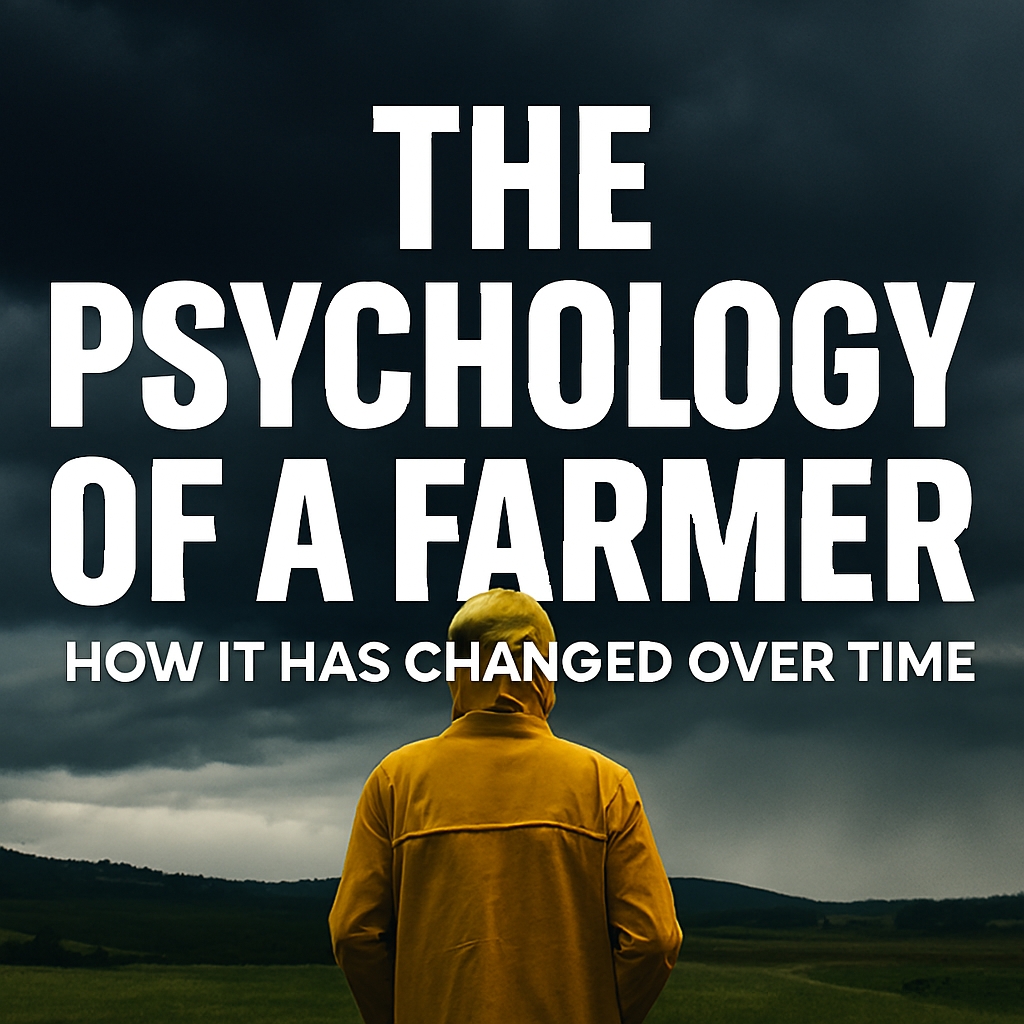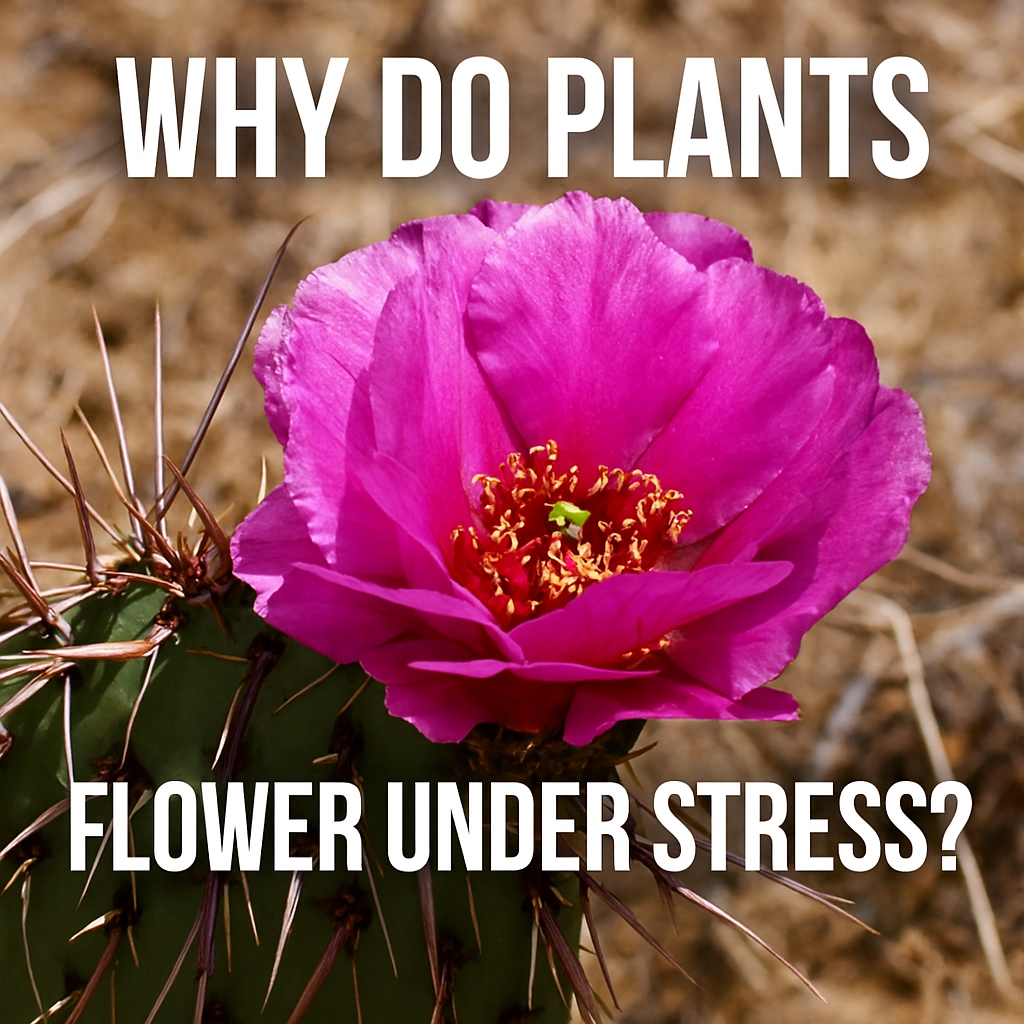The Psychology Of A Hardened Farmer – How It Has Changed Over Time
Farming – From Soil To Self
The Psychology Of A Hardened Farmer has long stood as a symbol of resilience, routine, and rootedness. For centuries, the psychology of a farmer was shaped by the land—its rhythms, its seasons, and its demands. But as the world has changed, so too has the inner world of the farmer. Today, the psychology of farming is no longer just about weather patterns and crop yields. It is about identity, technology, economics, and mental health. This transformation is not linear—it is layered, complex, and deeply human. Understanding this evolution is essential not only for agricultural policy but for cultural empathy. Farmers are no longer just stewards of the land; they are entrepreneurs, climate witnesses, and community anchors.
Rooted In Routine – The Traditional Farmer’s Mindset
For generations, farming was a way of life passed down through bloodlines and seasons. The traditional farmer’s psychology was grounded in predictability—planting, tending, harvesting, and repeating. Identity was tied to land ownership, family legacy, and community standing. The farmer’s sense of self was deeply intertwined with the soil beneath their feet. Emotional resilience was forged through hardship, but also through a sense of purpose and place. Faith, family, and familiarity were the cornerstones of mental stability. The pace of life was slow but steady, dictated by nature rather than markets. Risk was accepted as part of the cycle, not a threat to identity. Pride came from self-sufficiency and the ability to endure. This mindset created a stoic, grounded psychological profile—one that valued tradition over change.
Cultural Anchors Of Traditional Farming
| Element | Description | Psychological Impact |
|---|---|---|
| Land Ownership | Passed down through generations | Sense of legacy and permanence |
| Seasonal Rhythms | Predictable cycles of planting and harvest | Stability and routine |
| Community Ties | Strong local networks and shared labor | Social support and identity |
| Faith And Ritual | Religious and cultural practices tied to farming | Emotional grounding and meaning |
| Manual Labor | Physical work as daily norm | Embodied resilience and discipline |
The Rise Of Market Pressures – From Grower To Producer
As agriculture industrialized, the farmer’s role began to shift. No longer just a grower, the farmer became a producer—measured by output, efficiency, and profit margins. This transition introduced new psychological stressors. Market volatility, debt cycles, and competition replaced the predictability of seasonal rhythms. The farmer’s identity became entangled with economic survival. Pride in self-sufficiency gave way to anxiety over margins and mechanization. The emotional toll of this shift was often hidden behind stoicism. Many farmers internalized thoughts of failure as personal as it is personal, not systemic. The pressure to scale up or get out fractured traditional communities. The land became less a home and more a business asset. This era marked the beginning of a psychological rift between tradition and modernity.
Key Psychological Shifts In The Industrial Era
- Increased anxiety due to market unpredictability and debt
- Shift from communal identity to individual competition
- Erosion of intergenerational continuity in farming families
- Rise in feelings of isolation and burnout
- Greater emphasis on productivity over process
- Decline in perceived autonomy due to corporate contracts
- Emotional detachment from land as a spiritual or familial anchor
- Emergence of risk-aversion in decision-making
- Pressure to adopt new technologies without adequate support
- Growing disconnect between rural and urban cultural values
Technology As Both Tool And Tension
The introduction of advanced machinery, GPS systems, and data analytics has revolutionized farming. On one hand, these tools have increased efficiency, reduced physical strain, and opened new possibilities. On the other, they have introduced new forms of stress. Farmers must now be technologists, data analysts, and logistics managers. The learning curve can be steep, especially for older generations. There is a psychological cost to feeling left behind by innovation. Moreover, technology has not eliminated uncertainty—it has simply shifted its form. Weather apps may predict rainfall, but they cannot prevent drought. Drones may monitor crop health, but they cannot fix market prices. The farmer’s mind is now split between the field and the screen, between tradition and transformation.
Technological Impacts On Farmer Psychology
| Technology Introduced | Benefit | Psychological Challenge |
|---|---|---|
| GPS And Precision Ag | Improved efficiency and yield | Tech literacy stress |
| Drones And Sensors | Real-time crop monitoring | Data overload and decision fatigue |
| Automated Machinery | Reduced physical labor | Job displacement and identity loss |
| Farm Management Apps | Streamlined operations | Constant connectivity and burnout |
| Online Marketplaces | Expanded sales channels | Increased competition and pressure |

Climate Change And The Weight Of Uncertainty
Climate change has become a defining psychological stressor for modern farmers. Unpredictable weather patterns disrupt planting schedules and threaten yields. Droughts, floods, and heatwaves are no longer rare—they are expected. This environmental instability creates chronic anxiety. Farmers must now plan for the unplannable. The emotional toll of watching crops fail due to forces beyond control is immense. Many farmers report feelings of helplessness and grief. Climate change also challenges the farmer’s identity as a steward of the land. How does one protect against an identity that is no longer predictable? The psychological burden of climate responsibility is heavy, especially when paired with limited systemic support.
Emotional Responses To Climate Instability
- Chronic anxiety about weather unpredictability
- Grief over crop loss and land degradation
- Helplessness in the face of global forces
- Guilt over environmental impact of farming practices
- Frustration with policy inaction and misinformation
- Fear of long-term viability of farming as a livelihood
- Resentment toward urban narratives of sustainability
- Isolation from broader climate discourse
- Loss of faith in traditional knowledge systems
- Urgency to adapt without clear guidance
The Struggles
Mental Health And The Hidden Struggles Of Isolation
Farming has always been physically demanding, but its emotional toll is often invisible. The solitude of rural life can foster peace, but it can also breed isolation. Many farmers work alone for long hours, with limited social interaction. This isolation can lead to depression, anxiety, and even suicidal ideation. Mental health resources are often scarce in farming communities. Cultural norms discourage vulnerability, reinforcing a “tough it out” mentality. The stigma around seeking help remains strong, especially among older generations. Younger farmers may be more open, but face their own pressures. The emotional labor of farming—caring for animals, land, and legacy—is rarely acknowledged. As awareness grows, so does the need for culturally sensitive mental health support.
Mental Health Challenges In Farming Communities
| Challenge | Description | Impact On Wellbeing |
|---|---|---|
| Isolation | Long hours alone, limited social contact | Increased risk of depression |
| Stigma Around Help | Cultural resistance to therapy or counseling | Delayed or avoided treatment |
| Economic Stress | Debt, market instability, and financial pressure | Chronic anxiety and burnout |
| Generational Expectations | Pressure to uphold family legacy | Identity conflict and guilt |
| Lack Of Services | Few mental health professionals in rural areas | Limited access to care |
Gender Dynamics And The Changing Role Of Women In Agriculture
Historically, farming was seen as a male-dominated domain. Women’s contributions were often invisible, framed as “helping” rather than leading. Today, that narrative is shifting. More women are taking on leadership roles in agriculture, from farm ownership to agri-tech innovation. This shift brings both empowerment and new psychological pressures. Female farmers has other psychological pressures often to navigate identity of gender bias, the idea of family and work-life balance challenges. Their identity as farmers may be questioned or minimized. Yet many find strength in community networks and mentorship. The psychology of women in farming is shaped by resilience, adaptability, and a drive to redefine norms. Their presence is transforming not just the industry, but its emotional landscape.
Psychological Themes In Women’s Farming Experience
- Identity negotiation in male-dominated spaces
- Empowerment through ownership and leadership
- Stress from balancing family and farm responsibilities
- Resilience built through community and mentorship
- Frustration with gendered assumptions and stereotypes
- Pride in redefining agricultural narratives
- Anxiety over visibility and recognition
- Motivation to create inclusive farming cultures
- Emotional labor in caregiving roles on farms
- Hope in generational change and representation
Digital Identity And The Rise Of The Online Farmer
Social media has introduced a new layer to farmer psychology. Farmers now curate digital identities—sharing stories, struggles, and successes online. This visibility can be empowering, offering connection and advocacy. But it also introduces performance pressure. Likes, shares, and comments become new metrics of worth. The online farmer must balance authenticity with branding. Vulnerability becomes content, and privacy becomes porous. This shift can blur boundaries between personal and professional life. It also creates new forms of community—virtual networks that transcend geography. The psychology of the online farmer is shaped by both connection and comparison. Digital platforms offer support, but also amplify stress.
Digital Impacts On Farmer Identity
| Platform Use | Benefit | Psychological Risk |
|---|---|---|
| Storytelling | Builds community and visibility | Pressure to perform or overshare |
| Advocacy | Raises awareness of farming issues | Exposure to criticism or backlash |
| Branding | Creates new income streams | Identity confusion or dilution |
| Peer Support Groups | Offers emotional and technical support | Comparison anxiety |
| Educational Content | Shares knowledge and builds credibility | Burnout from constant engagement |
Land Loss And The Trauma Of Displacement
Losing land is not just a financial loss—it is a psychological rupture. For many farmers, land is tied to identity, memory, and belonging. When land is sold, seized, or degraded, it creates emotional trauma. This trauma can manifest as grief, shame, or disorientation. Displacement disrupts generational continuity and community ties. It can lead to feelings of failure, especially when land loss is involuntary. The psychological impact is compounded by lack of support or recognition. Farmers may struggle to rebuild identity without land. Some turn to activism, others to withdrawal. The emotional scars of land loss often linger for decades.
Emotional Consequences Of Losing Land
- Grief over severed connection to place
- Shame tied to perceived failure or debt
- Disorientation from loss of routine and purpose
- Anger at systemic forces or policy failures
- Anxiety about future livelihood and identity
- Depression linked to isolation and helplessness
- Nostalgia for lost landscapes and memories
- Resentment toward institutions or buyers
- Difficulty reintegrating into new communities
- Hope through storytelling and land justice movements
Intergenerational Tension And The Weight Of Legacy
Farming is often a family affair, with land and knowledge passed down through generations. But generational transitions can be fraught with tension. Older farmers may resist change, clinging to methods that once worked. Younger farmers may feel stifled, eager to innovate but bound by tradition. This dynamic creates psychological strain on both sides. Elders may fear obsolescence, while successors wrestle with guilt and pressure. The farm becomes a site of identity conflict, not just economic activity. Conversations about succession are often avoided, leading to uncertainty and resentment. Emotional inheritance—expectations, values, fears—can be heavier than the land itself. Navigating this terrain requires empathy, communication, and a redefinition of legacy.
Common Intergenerational Conflicts In Farming
- Resistance to adopting new technologies or methods
- Disagreements over risk-taking and investment
- Differing views on sustainability and diversification
- Tension between tradition and innovation
- Lack of clear succession planning
- Emotional pressure to maintain family legacy
- Frustration over perceived micromanagement
- Guilt over wanting to leave or change the farm
- Anxiety about disappointing parents or ancestors
- Hope for bridging generations through shared purpose
The Rise Of Regenerative Thinking And Ecological Identity
A growing number of farmers are embracing regenerative agriculture. This approach prioritizes soil health, biodiversity, and long-term sustainability. It represents not just a technical shift, but a psychological one. Farmers begin to see themselves as healers of the land, not just extractors. This ecological identity fosters a sense of purpose and connection. It also challenges the industrial mindset of yield-at-all-costs. Regenerative farmers often report increased wellbeing, driven by alignment with values. However, the transition can be daunting—financially risky and socially isolating. Support networks and education are critical to sustaining this shift. The psychology of the regenerative farmer is rooted in care, curiosity, and courage.
Regenerative Farming – Psychological Benefits And Barriers
| Aspect | Positive Impact | Psychological Challenge |
|---|---|---|
| Soil Restoration | Sense of healing and stewardship | Requires long-term patience |
| Biodiversity Practices | Connection to natural systems | Complexity and learning curve |
| Reduced Chemical Use | Alignment with health and ethics | Risk of lower short-term yields |
| Community Building | Shared values and support | Limited local adoption |
| Climate Resilience | Hope in adaptation | Uncertainty in outcomes |

Crisis Response And The Psychology Of Disaster Recovery
Natural disasters—floods, fires, storms—are increasingly common in farming regions. These events are not just physical disruptions; they are psychological shocks. The trauma of watching land, livestock, or infrastructure destroyed is profound. Recovery is not just about rebuilding fences—it’s about rebuilding trust in the future. Farmers often experience post-traumatic stress, especially when disasters repeat. The unpredictability of climate events erodes confidence and stability. Community support can buffer the impact, but resources are often stretched thin. Government aid may be delayed or inadequate, compounding stress. The emotional aftermath can linger long after the land is cleared. Resilience is real, but it is not infinite.
Psychological Phases Of Disaster Recovery In Farming
- Shock and disbelief during the event
- Acute stress and survival focus in the immediate aftermath
- Grief over loss of animals, crops, or heritage structures
- Anger at systems, nature, or self
- Fatigue from bureaucratic recovery processes
- Anxiety about recurrence and future viability
- Isolation if community is also affected
- Guilt over perceived failures or decisions
- Adaptation through new strategies or relocation
- Hope sparked by solidarity and rebuilding
Cultural Identity And The Myth Of The Noble Farmer
The image of the farmer as a noble, selfless provider is deeply embedded in many cultures. This myth can be empowering, but also burdensome. It creates expectations of sacrifice, stoicism, and moral purity. Farmers may feel pressure to live up to an ideal that doesn’t reflect their reality. This dissonance can lead to shame or imposter syndrome. The myth also obscures the diversity of farming experiences—across race, gender, class, and geography. It can marginalize those who don’t fit the mold. Reclaiming cultural identity means telling fuller, more complex stories. It means honoring both hardship and joy, tradition and change. The psychology of the farmer must be allowed to be human, not heroic.
Cultural Narratives That Shape Farmer Psychology
| Narrative | Impact On Identity | Hidden Cost |
|---|---|---|
| The Noble Provider | Pride and purpose | Pressure to suppress vulnerability |
| The Rugged Individual | Autonomy and strength | Isolation and reluctance to seek help |
| The Family Legacy | Continuity and belonging | Guilt and resistance to change |
| The Land Steward | Connection to nature | Burden of environmental responsibility |
| The Economic Underdog | Solidarity and resilience | Internalized scarcity and stress |
Urbanization And The Fracturing Of Rural Identity
As cities expand and rural populations decline, farmers face a shifting cultural landscape. Urbanization brings new opportunities, but also new tensions. The psychological distance between rural and urban life grows wider. Farmers may feel misunderstood, marginalized, or romanticized by city dwellers. Their work is essential, yet often invisible in urban narratives. This disconnect can lead to resentment or withdrawal. Younger generations may leave for cities, creating emotional gaps in farming families. The rural identity becomes harder to sustain without community continuity. Farmers must navigate feelings of cultural erasure and economic displacement. Rebuilding rural pride requires storytelling, policy support, and inclusive representation.
Effects Of Urbanization On Farmer Psychology
| Urban Influence | Psychological Impact | Cultural Consequence |
|---|---|---|
| Migration Of Youth | Loss of continuity and mentorship | Aging farming population |
| Media Misrepresentation | Feelings of invisibility or distortion | Stereotyping of rural life |
| Economic Displacement | Anxiety over land value and viability | Fragmentation of rural economies |
| Policy Neglect | Frustration with governance | Reduced investment in rural areas |
| Cultural Drift | Identity confusion and nostalgia | Weakening of rural traditions |
The Entrepreneurial Farmer And The Shift Toward Innovation
Modern farmers are increasingly embracing entrepreneurship. They launch direct-to-consumer brands, experiment with niche crops, and build agritourism ventures. This shift brings excitement, creativity, and new forms of agency. But it also introduces new psychological demands. The entrepreneurial farmer must juggle marketing, logistics, and customer service alongside traditional labor. Risk tolerance becomes a key trait, replacing the old emphasis on routine. Identity expands from grower to innovator, but not without tension. Some farmers struggle with imposter syndrome or burnout. Others thrive on autonomy and vision. The psychology of the entrepreneurial farmer is shaped by ambition, adaptability, and emotional resilience.
Traits Of The Entrepreneurial Farmer
- High tolerance for financial and operational risk
- Strong sense of personal vision and brand identity
- Desire for autonomy and creative control
- Willingness to learn and adapt quickly
- Emotional resilience in the face of setbacks
- Passion for storytelling and customer connection
- Strategic thinking across multiple domains
- Stress from multitasking and role overload
- Pride in redefining farming as innovation
- Hope in building legacy through new models
Crisis Of Meaning And The Search For Purpose
In times of economic, environmental, and cultural upheaval, farmers often face a crisis of meaning. Why continue when the odds feel stacked against you? This existential question haunts many in the agricultural world. The search for purpose becomes central to psychological wellbeing. Some find it in sustainability, others in community, others in faith. The crisis of meaning is not a weakness—it is a reflection of depth. Farmers are not just laborers; they are thinkers, feelers, and storytellers. Reconnecting with purpose can transform despair into direction. It can turn routine into ritual, and hardship into heritage. The psychology of farming must include space for reflection and renewal.
Sources Of Meaning In Modern Farming
| Source Of Meaning | Emotional Benefit | Psychological Risk |
|---|---|---|
| Environmental Stewardship | Sense of legacy and impact | Pressure to meet high standards |
| Community Engagement | Belonging and shared purpose | Risk of burnout or overextension |
| Faith And Spirituality | Grounding and resilience | Conflict with modern practices |
| Innovation And Growth | Excitement and pride | Anxiety over failure or rejection |
| Family Continuity | Connection to heritage | Guilt or tension in succession |
The Farmer As Climate Witness And Ethical Agent
Modern farmers are not just reacting to climate change—they are witnessing it firsthand. This role carries ethical weight and emotional complexity. Farmers see the effects of rising temperatures, shifting seasons, and extreme weather before most others. They must make decisions that balance survival with sustainability. This dual role—victim and agent—creates psychological tension. Some feel guilt over past practices, others feel anger at systemic inaction. Many wrestle with the ethics of adaptation: what is enough, what is possible, what is fair. The climate witness farmer is often isolated in their awareness. Their testimony is vital, but rarely heard. Supporting this role requires validation, education, and community.
Ethical Dilemmas Faced By Climate-Conscious Farmers
- Balancing short-term survival with long-term sustainability
- Deciding whether to invest in regenerative practices
- Navigating pressure from markets and consumers
- Reconciling tradition with ecological urgency
- Facing guilt over past environmental impact
- Advocating for change while managing burnout
- Feeling unheard in policy and media discourse
- Choosing between profit and planetary health
- Educating others while still learning themselves
- Holding hope in the face of global uncertainty

The Emotional Landscape Of Animal Care
For livestock farmers, emotional labor is a daily reality. Caring for animals involves attachment, responsibility, and ethical decision-making. Farmers often form bonds with their animals, even when those animals are destined for market. This creates emotional dissonance—love and loss, care and commerce. The psychology of animal care is shaped by empathy, routine, and moral complexity. Decisions about breeding, treatment, and slaughter carry emotional weight. Farmers may experience grief, guilt, or numbness. The emotional landscape of animal farming is rarely acknowledged, but deeply felt. It deserves space in conversations about mental health and ethics.
Emotional Dimensions Of Livestock Farming
| Aspect Of Care | Emotional Experience | Psychological Impact |
|---|---|---|
| Daily Feeding And Tending | Routine and connection | Grounding and responsibility |
| Illness And Injury | Stress and urgency | Anxiety and emotional fatigue |
| Breeding Decisions | Hope and planning | Pressure and ethical tension |
| Slaughter And Sale | Grief and detachment | Moral dissonance and coping |
| Birth And Growth | Joy and pride | Emotional reward and renewal |
The Farmer As Educator And Cultural Bridge
Farmers are increasingly taking on the role of educators. They host school visits, share knowledge online, and participate in public discourse. This role bridges the gap between rural and urban, tradition and innovation. It offers psychological rewards—validation, connection, and purpose. But it also introduces new pressures. Farmers must simplify complex realities for diverse audiences. They may face skepticism or romanticization. The educator role requires emotional intelligence and communication skills. It can be empowering, but also exhausting. Still, many farmers embrace it as a way to shape narrative and build understanding. The psychology of the farmer-educator is rooted in generosity, clarity, and cultural stewardship.
Traits Of The Farmer-Educator
- Strong sense of purpose and mission
- Ability to translate complex systems into relatable stories
- Emotional resilience in the face of misunderstanding
- Desire to build bridges across cultural divides
- Pride in sharing lived experience and expertise
- Stress from public visibility and performance
- Motivation to correct misconceptions and stereotypes
- Hope in shaping future generations
- Vulnerability in exposing personal struggles
- Commitment to inclusive and honest storytelling
Conclusion – The Mind Beneath The Soil
The psychology of a farmer is as layered as the land they tend. It holds tradition, trauma, innovation, and hope. From the stoic rhythms of ancestral farming to the adaptive mindset of climate-conscious entrepreneurs, the farmer’s inner world is evolving. This evolution is not just technical—it is emotional, ethical, and cultural. Farmers are no longer just growers; they are witnesses, educators, caregivers, and creators. Their mental health, identity, and purpose deserve attention and respect. Understanding farmer psychology is not a niche concern—it is a societal imperative. It shapes our food systems, our cultural narratives, and our environmental future. As we listen to the land, we must also listen to those who live by it. Their stories are not just agricultural—they are human.
Join The Discussion – What Does Farming Mean To You
The psychology of a farmer is not static—it is a living, evolving story. From tradition to transformation, from isolation to innovation, farmers carry emotional landscapes as vast as the fields they tend. This exploration invites reflection, empathy, and dialogue. What does farming mean to you? How do we honor the emotional labor behind our food systems?
#FarmerPsychology #MentalHealthInAgriculture #RuralIdentity #ClimateWitness #RegenerativeMindset #FarmingAndFeelings #InclusiveAgriculture #LandAndLegacy #ModernFarmerVoices #AgriculturalEmpathy













Leave a Reply